Education is not about learning what is already known, and this is a continuous process that encourages learners to think out of the box and develop innovative and creative minds.
This type of learning process has to start from kindergarten level, and you can achieve it through a play-based learning process that promotes the holistic development of a child. It has been integrated into preschool learning due to this reason.
What is Play-Based Learning?
An early education center that uses play-based learning methods to educate young minds focuses on developing their confidence, social-emotional abilities and cognitive skills. Children love to play, and teachers can motivate the students to learn or discover new facts while playing.
In a play-based learning academy, children have the liberty to choose their activities for a day. A room may be divided into different stations/sections, such as a reading area, block station, area for dramatic play, etc.
Play-based programs are regarded as ‘child-centric’ learning programs since the children use their interests and curiosity to learn independently.
How to Do It?
A teacher uses books or posters to educate on different topics in academic programs.
In a school following a play-based learning process, teachers work as learning facilitators. They may use pet animals, plants or cut-outs to let children play and learn through the activity.
Importance of Play-Based Learning:
A child care center that implements play-based learning promotes cognitive development, social-emotional development and physical development.
Social-Emotional Development
Every child,
- Learns to co-operate with others, resolve conflicts, and become confident by establishing a sense of self.
- Develops the motivation to learn by exploring own interests.
- Cognitive Development.
- Develops problem-solving skills, literacy/language skills, perception abilities and the curiosity to learn.
- Learns to represent ideas using symbols and to focus on tasks
- Physical Development
- Learns to practice fine motor skills and gross motor skills, which builds muscle and improves coordination
- Grows through tactile experiences
In an early education center, children are encouraged to learn the facts through playing instead of remembering them through rote learning. Petite School House promotes play-based learning for the holistic growth of a child.


